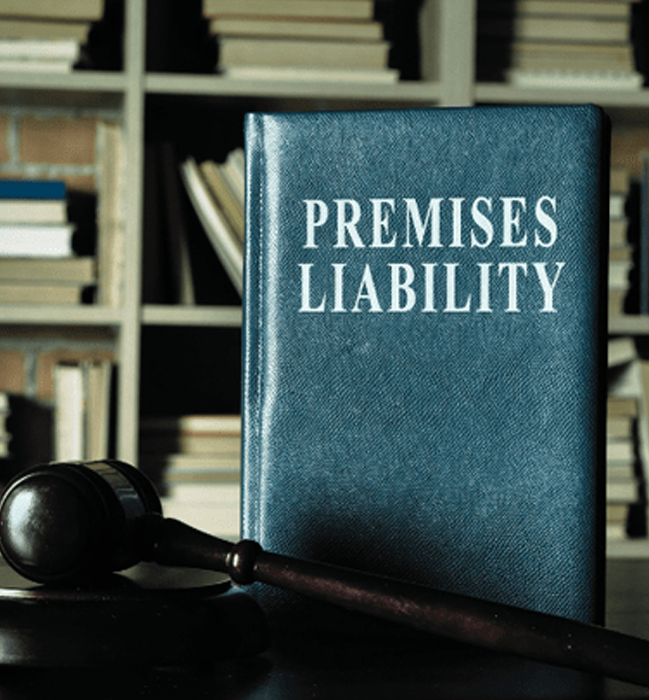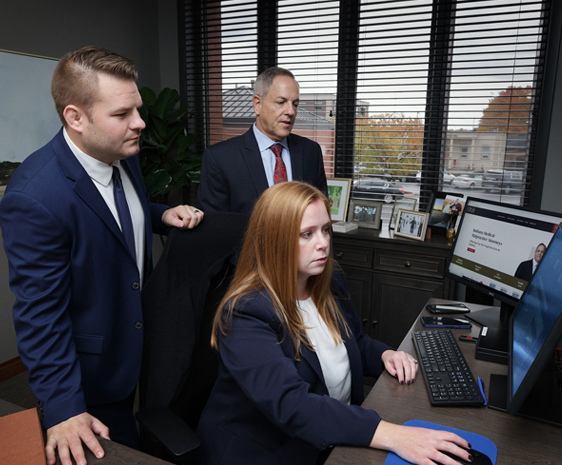Indiana Premises Liability Lawyer
Representing injured victims in Indiana

Our Premises Liability Lawyers Hold Owners Accountable for Unsafe Conditions
The premises liability lawyers at Langer & Langer have been helping injured victims in Indiana hold negligent property owners accountable for unsafe conditions for over 30 years. If you were hurt while lawfully visiting someone else’s property, and dangerous conditions contributed to your accident, we may be able to help you receive substantial compensation. Our injury attorneys will identify all liable entities, so you can recover maximum compensation for the harm you’ve endured.
Contact our premises liability lawyers online or call Langer & Langer at 219-246-4759 to find out how we can help you win you get back on your financial feet.
What Is Premises Liability?
Premises liability claims and lawsuits are based on the theory that property owners, managers, and operators have a duty to manage, supervise, and operate their properties in ways that minimize the unnecessary risk of harm to others. Property owners who fail to inspect their premises, identify dangers that exist, and remedy the hazards or warn guests about them can be held liable for any harm that is caused. If you are lawfully on a property, and you get injured due to unsafe property conditions, you may have a basis to receive compensation through a premises liability claim or lawsuit.
Common Accidents Our Premises Liability Lawyers See
- Construction accidents that occur when new structures are built or remodeling projects are in progress
- Dog bites and vicious animal attacks
- Exposure to toxic substances
- Inadequate crowd control at concerts and special events
- Robberies and assaults
- Slip and fall accidents in grocery stores, hotels, and restaurants
- Swimming pool accidents at hotels and on private properties

Injuries Caused by Premises Liability Accidents
Some unsafe property conditions cause only minor injuries. Others, however, pose a significant risk to the wellbeing of guests. Oftentimes, dangerous property conditions can be deadly. Common injuries sustained in premises liability cases include, but are not limited to:
- Broken Bones
- Drownings and Near Drownings
- Neck Injuries
- Poisonings
- Severe Burns
- Spinal Cord Injuries
- Traumatic Brain Injuries
- Wrongful Death
How Property Owners Can Be Negligent
There are various ways that property owners and managers can be negligent in maintaining safe conditions on their properties. While most property hazards are connected to material defects, or inadequate repair or maintenance, others involve owners who are negligent in preventing harmful acts. Examples of dangerous property conditions involving negligence include:
- Broken or missing fencing around a swimming pool
- Improper warnings or markings in construction sites
- Lack of fencing around or covering a hole in the ground
- Lack of security officers in areas where assaults are common
- Broken or missing fencing around a swimming pool
- Improper warnings or markings in construction sites
- Lack of fencing around or covering a hole in the ground
- Lack of security officers in areas where assaults are common
- Non-working security cameras in isolated parking lots or walkways
- No warning for an uneven sidewalk or unexpected step
- No warning sign for a wet floor
- Non-working security cameras in isolated parking lots or walkways
- No warning for an uneven sidewalk or unexpected step
- No warning sign for a wet floor
Duty Owed to Licensees, Invitees, and Trespassers
The level of care a property owner, manager, or operator must exercise sometimes depends on the reason the person has entered the premises. If you were injured on someone else’s property, your premises liability lawyer might consider whether you were an invitee, a licensee, or a trespasser when determining whether you have a viable injury claim.
Invitees
Invitees are owed the highest duty of care from the property owner. If an invitee is injured, property owners/occupiers can be held liable if they knew about, or reasonably should have known about an unsafe condition had they taken reasonable care to inspect the premises, and they did not remedy the danger.
Licensees
Licensees may be able to recover compensation for injuries caused by dangerous property conditions if the owner/occupier knew about the hazard and failed to warn them of its existence. You are a licensee if you were invited onto the property as a social guest.
Trespassers
Property owners/occupiers are not generally liable for injuries to trespassers on their premises because trespassers are not legally on the grounds. They are prohibited from intentionally causing harm to trespassers, by setting traps or creating hazards, however. Additionally, property owners must warn trespassers they know to be on their properties that dangers exist.
Children and the Attractive Nuisance Doctrine
Under the attractive nuisance doctrine, property owners can be held liable for injuries caused to a child trespasser if the owner maintains or creates an unsafe condition that may attract young children. If the burden to eliminate the danger was small in comparison to the risk it posed to children, but the owner failed to eliminate the danger, he or she can be sued for damages.
Premises Liability FAQs
I was assaulted in the shopping mall parking lot. Who do I sue?
Multiple entities may be liable for your injuries. The mall owner can be held liable for failing to provide adequate security. A security company may also be able to be held liable if their officers failed to protect you.
Are landlords liable for injuries that happen in common areas?
Landlords can be held liable for injuries that occur in common areas like hallways, stairwells, gyms, and swimming pools.
Homeowners Associations may be able to be held liable for injuries that happen in areas they are required to maintain. These may include, but are not limited to: swimming areas, workout rooms, community buildings, and playgrounds.
Call the premises liability lawyers at Langer & Langer at 219-246-4759 or contact us online to review your case.
